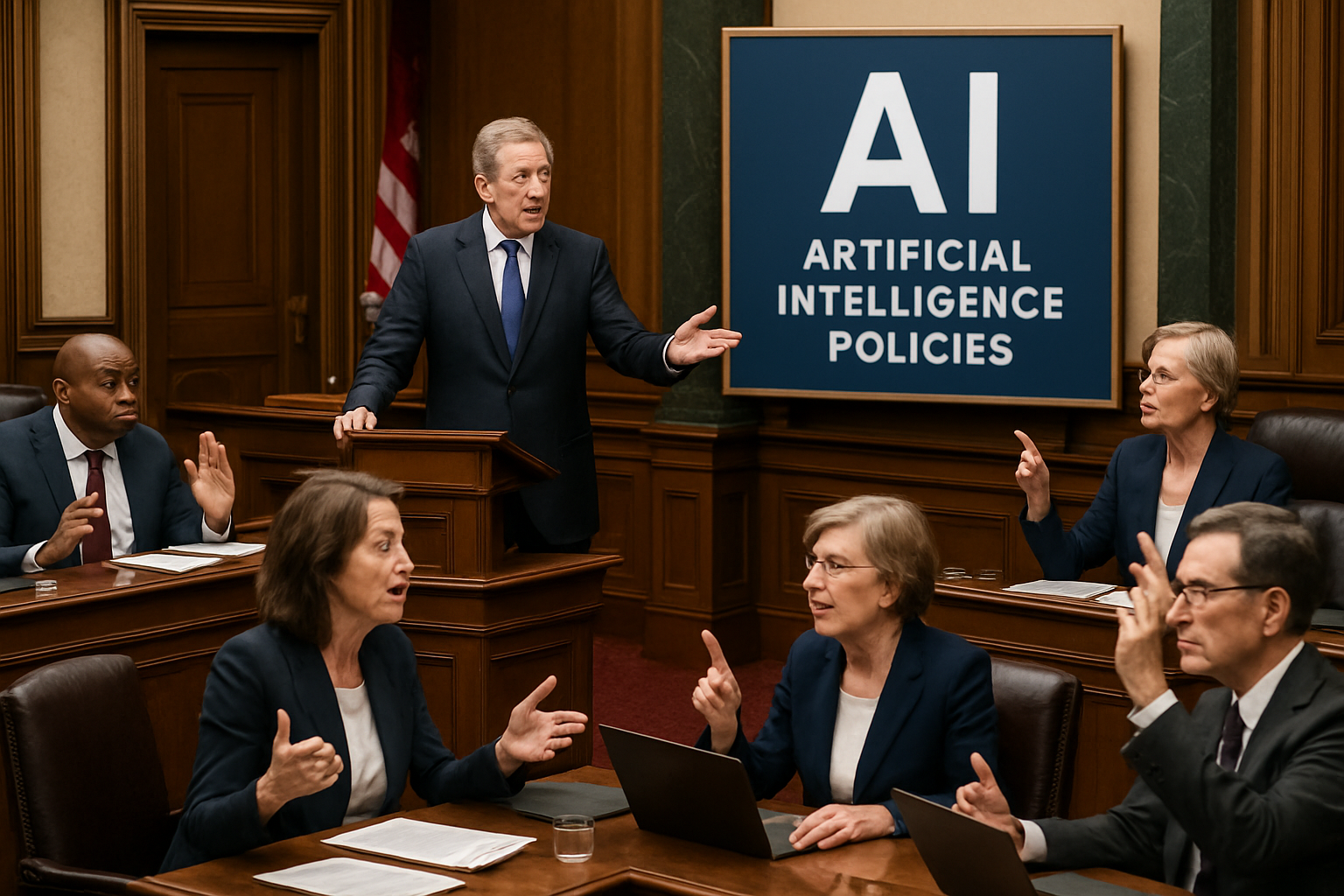Pennsylvania Breaks Ground: Local Votes Now Required for AI Data Centers
Quick Take
- Pennsylvania AI bill now mandates local approval votes for data center projects
- Amendment responds to community protests over Amazon’s multi-billion dollar investments
- Senate voted 99-1 to reject federal moratorium on state AI laws
- Local control model could become national template for AI governance
Pennsylvania is breaking new ground in how we regulate AI by requiring communities to approve data center projects. This marks a real shift toward letting local areas have a say in tech regulation through Senate Bill 939 now includes mandatory local approval, which the Senate passed with a decisive 99-1 vote.
Democratic Senator Marty Flynn announced Tuesday that the bipartisan Senate Bill 939 now requires local approval for AI data center projects through publicly advertised community meetings. The change comes after community pushback in Luzerne and Bucks Counties, where residents protested Amazon’s expansion plans despite the company’s promises to be carbon-neutral by 2030 and water-positive by 2040.
Local Democracy Meets Tech Investment
“This amendment is about putting power back in the hands of local governments and the people they represent,” Flynn stated.
Communities have voiced concerns about energy grid strain, fossil fuel reliance, water consumption, and environmental pollution from massive AI data centers.
Pennsylvania’s approach gives AI companies faster state-level incentives under the Commonwealth Opportunity Zone designation while making sure communities actually get a voice. This setup provides tech firms both regulatory efficiency and grassroots legitimacy.
Federal-State Power Balance Shifts
Major federal developments are happening alongside this approach. Early Tuesday, the U.S. Senate voted 99-1 to remove a proposed 10-year moratorium on state AI laws from the budget bill. Senators Marsha Blackburn and Maria Cantwell argued that states need to keep their authority until Congress passes comprehensive federal legislation.
Blackburn explained, “This provision could allow Big Tech to continue to exploit kids, creators, and conservatives. Until Congress passes federally preemptive legislation like the Kids Online Safety Act and an online privacy framework, we can’t block states from making laws that protect their citizens.”
Senator Ted Cruz expressed frustration over the failed federal moratorium, highlighting tensions between tech lobbying groups and state sovereignty. The broad coalition opposing federal preemption includes consumer groups, labor unions, civil rights organizations, and state officials – showing significant political momentum favoring local control.
Business Strategy Implications
AI companies looking at expansion strategies need to adapt to Pennsylvania’s balanced regulatory approach. Negotiations involving Governor Josh Shapiro’s office, federal officials, and Amazon executives resulted in concrete data center commitments, showing that collaborative frameworks can work.
However, community protests revealed gaps between top-down deal-making and grassroots acceptance. Companies should prepare for longer timelines that include public meetings and community input processes. Projects that secure local approval are likely to enjoy stronger long-term stability and less operational friction.
Firms need strategies to satisfy both state-level incentives and local community standards – a dual mandate requiring sophisticated stakeholder management. Amazon is emphasizing community benefits and environmental commitments in its public communications to adapt.
Infrastructure and Environmental Challenges
Energy infrastructure challenges remain significant as AI data centers demand massive electrical capacity, often stressing existing grids. Pennsylvania’s approach acknowledges these concerns while trying to maintain development momentum, but local approval processes will be tested in addressing technical infrastructure limitations.
Environmental considerations are becoming more prominent. Amazon’s carbon-neutral and water-positive commitments reflect growing pressure for sustainable AI development. Companies entering Pennsylvania’s framework must demonstrate genuine ecological responsibility beyond just regulatory compliance.
While the amendment gives communities more voice, it may also introduce delays and uncertainties in project approvals. Local opposition carries the risk of stalling economically beneficial developments, creating tension between democratic processes and economic competitiveness.
National Template for AI Governance
Pennsylvania’s legislation shows how governance models for emerging technologies are evolving. As AI capabilities rapidly expand, traditional regulatory frameworks struggle to keep pace. The state’s combination of expedited development incentives with mandatory local approval attempts to resolve this tension through distributed decision-making.
This approach could influence AI policy nationwide. Other states may adopt similar frameworks, leading to patchworks of localized AI governance that companies must navigate. Alternatively, success in Pennsylvania could inspire federal legislation merging innovation incentives with community protections.
The near-unanimous Senate rejection of the federal AI moratorium suggests bipartisan support for states’ rights to regulate AI. Pennsylvania serves as a real-world experiment in balancing technological advancement with democratic accountability, with implications extending well beyond state borders.
Business leaders should anticipate increasingly complex regulatory environments where local community relations are as critical as state and federal compliance. Pennsylvania’s amendment signals that successful AI deployment requires not only technical excellence and regulatory approval but also genuine grassroots support.






